Corinthian grapes dehydrated
When looking for dried fruit specialties, grapes are always a delicious ingredient, and for this reason very popular for those who want to taste them out of season. In this case, the dried grape is that of Corinto Nero , widespread in Greece and the Aegean islands, traditionally used to create fine passito wines.
Even as a dehydrated grape, however, this fruit is delicious and retains many of its beneficial characteristics.
Dehydrated Corinth grapes: properties and benefits
The fruit has the properties common to red berried fruits, with various benefits due to antioxidants such as polyphenols.
Several antioxidants are contained in dried Corinth grapes, including anthocyanidins and resveratrol, contained in the peel and present in the form of dried grapes.
In particular, compared to other types of dried grapes, the grape variety of Corinto has a higher total content of phenols, flavanols and anthocyanins, and in some drying processes increases the qualitative value of the anthocyanidins.
Resveratrol is known as a cell protection element, as it slows down cell aging as an antioxidant. It also seems to offer protection to our body from gastric inflammation.
Phenolic compounds are being studied for their beneficial effect on the cardiovascular system, and may help in the prevention of atherosclerosis.
Inside the dehydrated Corinth grapes there is an excellent potassium content, which helps regulate blood pressure, and for those who exercise it is an important mineral. It keeps the muscles toned, regulates fluid balance, nerve and muscle functions.
In terms of calories, Corinth grapes should be eaten in moderation, as they contain many sugars and carbohydrates,
In addition to these elements, in dried grapes there are always mineral salts and vitamins of interest for well-being, and a low content of fats, cholesterol and sodium.
Corinth grapes provide satiating fibers, essential for the well-being of our intestine, and glycogen reserves for those who exercise.
Origins and History of cultivation
 This variety of seedless grapes, called Corinth grape, is very similar to raisins and sultanas, except that it is actually produced with different grapes, Vitis vinifera L., var . Apyrena, and with different methods.
This variety of seedless grapes, called Corinth grape, is very similar to raisins and sultanas, except that it is actually produced with different grapes, Vitis vinifera L., var . Apyrena, and with different methods.
The so-called black Corinth grape is thought to have arrived from Greece to Sicily through the Greek colonists in the 6th century BC. In fact, they date back to 1400 BC. of the remains of grape seeds found in Portella di Salina, in the Aeolian archipelago.
The name, in fact, derives from Greece and the city of Corinth, and its grapes arrived in the Sicilian islands to be destined for drying. In this way raisins were produced, called passolina.
The grapes destined for vinification, on the other hand, created the famous Malvasia wine of the Lipari Islands. The grains of this grape are small, sweet and sometimes even sour, Although it originated in the Mediterranean region, and is still popular in Greek and French cuisine, this type of grape is also grown in California, where it is dried in the sun and then sold as dried Corinth grapes.
They are small, sweet and sometimes even tart, and have a high nutritional value , providing fiber and antioxidants, among other nutrients such as potassium and iron.
Plant and Fruit
The variety Vitis vinifera L., var. Apyrena, from Vitis vinifera, is a black table grape cultivar, which produces seedless fruit.
Its fruits are dark berries (black-purplish), oval in shape, have excellent taste properties, and are contained in abundant but not too compact bunches. The flavor is sweet, and can be enjoyed when ripe, from the end of September to the end of October.
The plant is always part of the grape family, the Vitis Vinifera known for millennia - mentioned since the time of the Bible. This plant is thought to be native to India, and from here, later, it spread first to Asia and then to the Mediterranean basin.
Nutritional values of dehydrated Corinth grapes
This type of grape is rich in antioxidants, polyphenols, soluble and insoluble fiber and provides a plethora of vitamins and minerals, including a complex of B vitamins, potassium, calcium and iron.
In particular, the nutritional values of dried Corinth grapes have about 350 calories per 100 grams.
Furthermore, in the face of low fat (about 0.3%), Corinth grapes give about 4.9% of proteine, calcium with about 125 mg / 100 g, iron at 2.70% and potassium with values of 1119 mg / 100 g.
At the level of vitamins, the Corinth grape gives decent quantities of riboflavin, thiamine, vitamin C, vitamin B6 (0.29 mg / 100 g). < / span>
For a nutritious snack dried grapes represent a useful concentrate, with directly assimilable sugars, useful for those who practice sports and want to give themselves an energy snack .
How to consume or use dehydrated Corinth grapes in the kitchen
Corinthian dried grapes can be eaten as a wellness snack , or added to recipes. In particular, for the top decoration of muffins, cakes, cupcakes, ice creams and parfaits. It is used as an ingredient for breakfasts with a mix of cereals, dried fruit salads, or in yogurt and smoothies. In some recipes, it can be combined with vegetables and white meats .
Dried Corinth grapes: side effects and contraindications
There are no particular contraindications to taking dried fruit grains such as Corinth grapes, always remaining in the correct quantities - otherwise you risk the laxative effect.
Pay attention if you are intolerant or allergic to grape food.
For those with obesity, excessive overweight or problems with blood sugar levels (diabetes), it is advisable to take dehydrated grapes in minimal quantities, given the high presence of sugars.
![]()
![]()

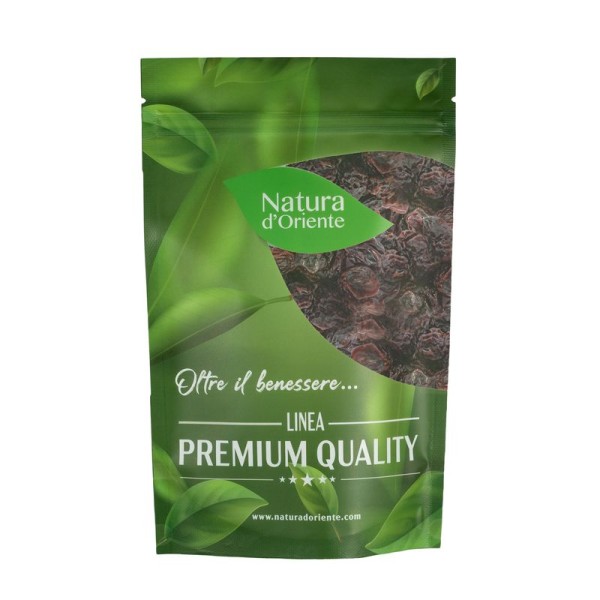









 No reward points for this product.
No reward points for this product.
 This variety of seedless grapes, called Corinth grape, is very similar to raisins and sultanas, except that it is actually produced with different grapes, Vitis vinifera L., var . Apyrena, and with different methods.
This variety of seedless grapes, called Corinth grape, is very similar to raisins and sultanas, except that it is actually produced with different grapes, Vitis vinifera L., var . Apyrena, and with different methods.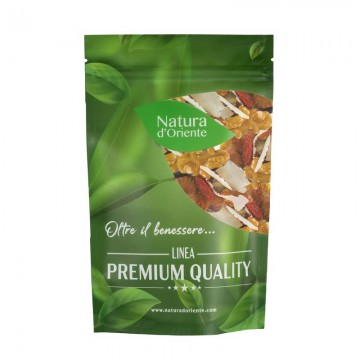
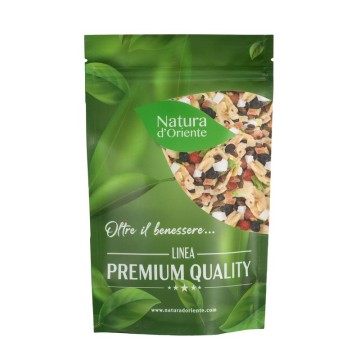
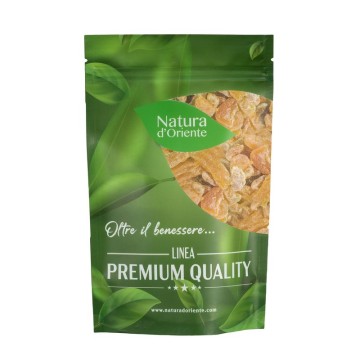
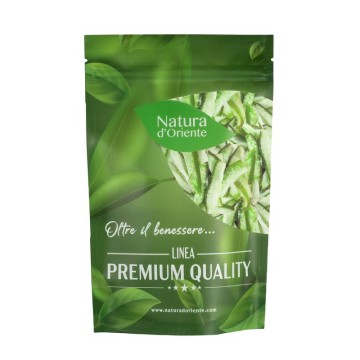
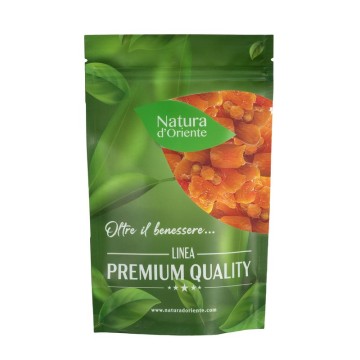
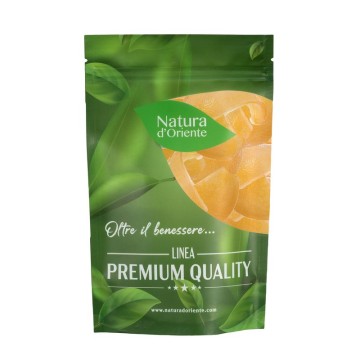

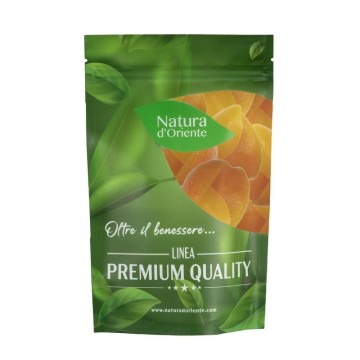
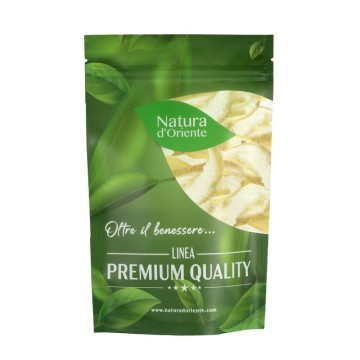
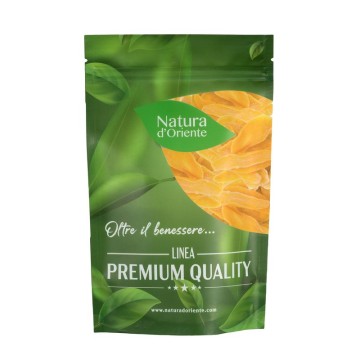

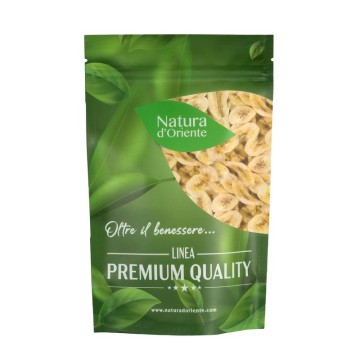


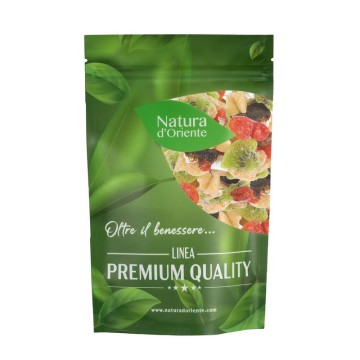
![Natural dehydrated grapefruit without added sugar [NATURADORIENTE]](https://www.naturadoriente.com/10190-home_default/pompelmo-naturale-disidratato-senza-aggiunta-di-zucchero.jpg)